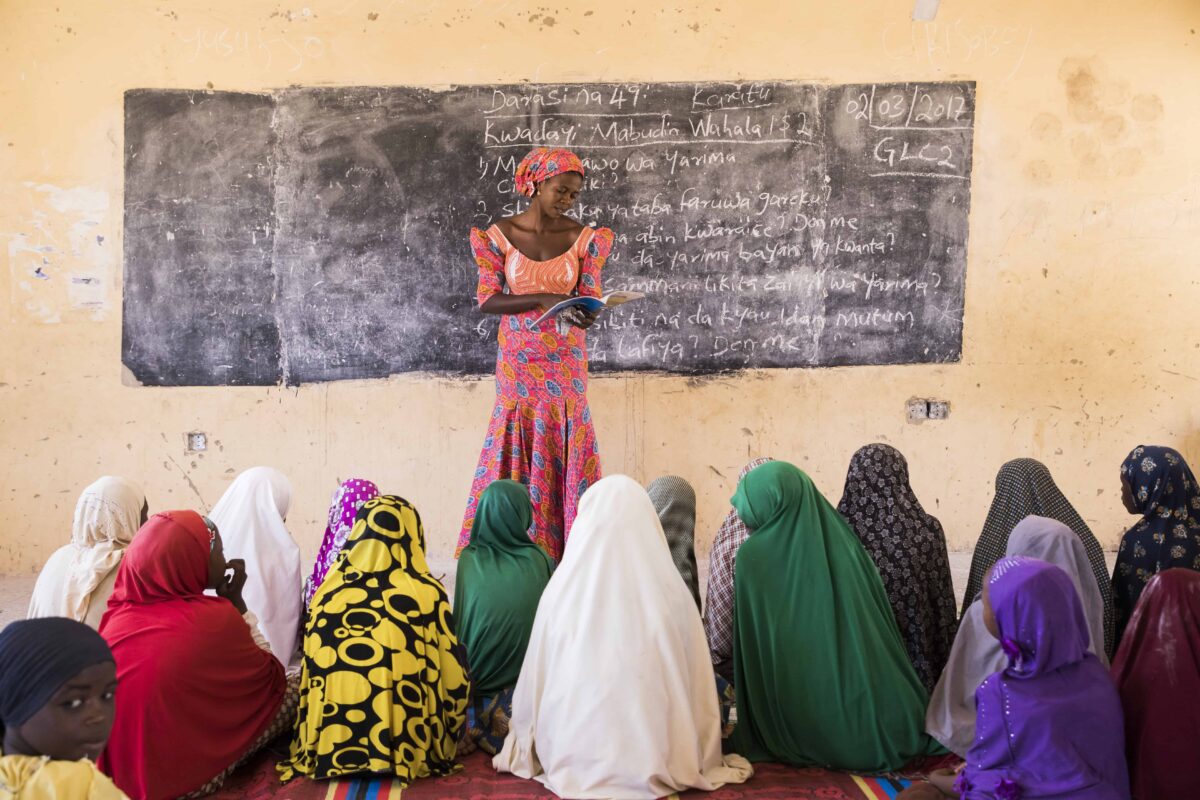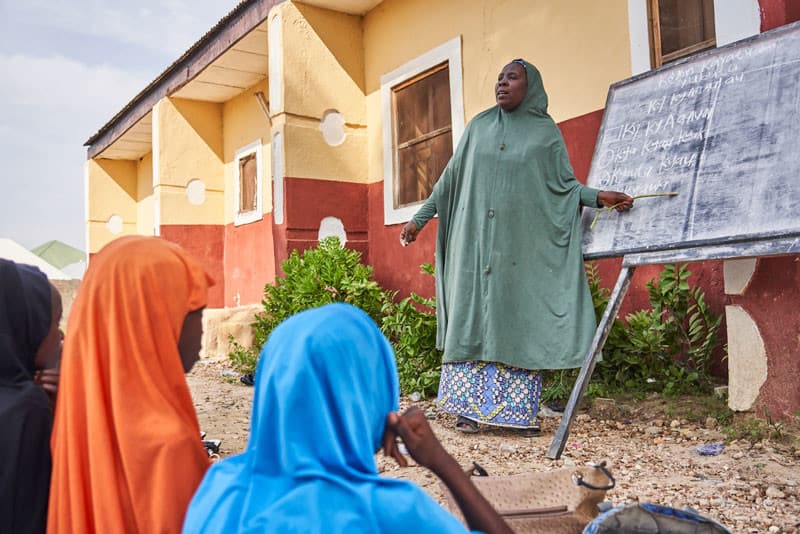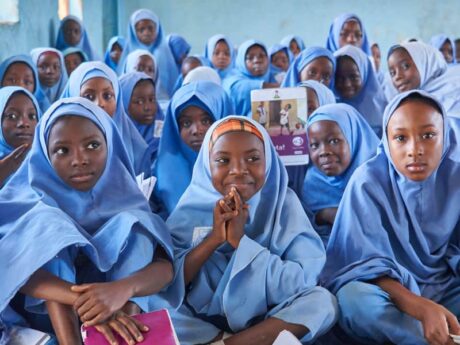Bauchi, NigeriaA new policy brief series offers Nigerian policymakers and education officials evidence-based policy recommendations to improve the conditions to increase early grade reading outcomes.
The three briefs – which focus on the global best practices of reading programs often referred to as the “5 Ts” (Teaching, Time, Tongue, Text and Testing) – provide recommendations for:
- Improving the teaching of early grade reading;
- Improving the teaching in the language of the environment (Hausa) and the transition to English in the primary grades; and
- Providing sufficient instructional time for children to learn to read.
The briefs are based on evidence gathered from monitoring and evaluation, Early Grade Reading Assessment results and the analysis of existing policies at the federal and state level.
In collaboration with federal and state government partners, the Northern Education Initiative Plus project developed and presented the three policy briefs at Policy Action Planning workshops in Nigeria’s Bauchi and Sokoto states in December 2017.
They are one piece of the U.S. Agency for International Development-funded project’s efforts to support formal and non-formal schools in Bauchi and Sokoto states to improve the reading skills of more than 2 million primary grade learners. It is implemented by Creative Associates International and other partners, including Education Development Center, Florida State University and Overseas Strategic Consulting.
Paving a path forward through policy
At the Policy Action Planning workshops, the project’s early grade reading experts presented a number of policy recommendations for long-term improvements to basic education, particularly for early grade reading.
“The presentation of the policy briefs in the workshops sparked concern among the stakeholders,” says Joy du Plessis, Senior Reading Specialist at Creative. “In order to achieve the goal of children being able to read in Hausa in the early grades, the education systems in northern Nigeria needs further strengthening.”
The participants in the workshops included representatives from the Federal Ministry of Education, Nigerian Educational Research and Development Council, State Ministries of Education, Teachers Registration Council of Nigeria, State Ministries of Education, State Universal Basic Education Boards and Local Government Education Authorities.
Mansur Abubakar, Director of Planning, Research and Statistics on the Bauchi State Universal Basic Education Board, says the policy briefs include critical information that will help guide the next steps in improving early grade education in the state.
“The Policy Action Planning workshops identified many issues with our schools that we knew existed but had not researched on or had no evidence to back them,” says Abubakar. “We now understand that an effective reading program requires a deliberate and systemic approach.”
Abubakar says the policy briefs are informing efforts to place teachers in areas where they are needed most, reallocate resources based on evidence and ensure early grade reading reform efforts can be sustained.
Moving forward, federal and state governments will reform teacher education at pre- and in-service levels to attract qualified teachers into the school system, address teacher absenteeism, and increase instructional time. They also will support the Federal Ministry of Education’s policy of teaching young students all subjects in the local language of Hausa.
“We now have an action plan, allocating responsibility to the different actors,” says Abubakar.
Reshaping policy to boost education
The workshops and policy briefs complement the Northern Education Initiative Plus project’s overall efforts to reform Nigeria’s education system.
“The workshops built on previous activities conducted by the project in the policy arena including policy mapping, developing the reading policy framework and holding reading policy dialogues,” says du Plessis.
She adds that the project has presented the briefs to all key stakeholders with a focus on concerete actions that will not only improve early grade reading and the transition to English but also primary education more generally.
Over the last two years, the education project has acheived some key policy shifts in education. For example, both Bauchi and Sokoto state education officials agreed to amend the first to third grade school timetable from five to ten periods per week to teach Let’s Read! (Mu Karanta! in Hausa) lessons, the curriculum developed by the project. The books equip grade 1 to 3 students to read in their local language of Hausa.
The project is also assisting the Nigerian Educational Research and Development Council, the agency responsible for curriculum development, to develop a road map for designing a National Reading Framework.
To continue the progress, the project’s reading policy experts presented memos in support of making Early Grade Reading part of the national curriculum before the the Joint Consultative Council on Education, Nigeria’s second highest decision making body on education.



